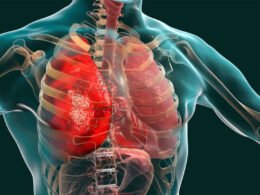Feeling fatigued and constantly battling cravings can be frustrating, but it’s important to understand that it may not be entirely your fault. The modern diet, filled with processed foods and refined sugars, can wreak havoc on your energy levels and lead to intense cravings. These foods are often designed to be hyper-palatable, leading to overconsumption and a rollercoaster of energy highs and crashes.
Additionally, the lack of essential nutrients in these processed foods can leave your body and brain starved for the fuel they need to function optimally. Furthermore, the fast-paced nature of modern life often leads to reliance on convenient, but nutrient-poor, food options. This can perpetuate a cycle of fatigue and cravings, as the body struggles to find sustained energy from these empty calories.
Understanding that these factors play a significant role in your energy levels and cravings can help alleviate feelings of guilt or self-blame, and empower you to make positive changes to support your well-being.
The Role of Processed Foods in Your Energy Levels
Processed foods, often high in refined sugars, unhealthy fats, and artificial additives, can have a detrimental impact on your energy levels. These foods are typically stripped of essential nutrients during processing, leaving them devoid of the vitamins, minerals, and antioxidants that your body needs to thrive. As a result, consuming processed foods can lead to rapid spikes and subsequent crashes in blood sugar levels, leaving you feeling fatigued and irritable.
Moreover, the high levels of added sugars in processed foods can contribute to insulin resistance, a condition where your cells become less responsive to the hormone insulin. This can further exacerbate energy fluctuations and lead to persistent cravings for more sugary foods. Additionally, the inflammatory nature of many processed foods can also contribute to feelings of fatigue and malaise.
By understanding the impact of processed foods on your energy levels, you can make informed choices to prioritize whole, nutrient-dense foods that support sustained vitality.
What Happens When You Feed Your Brain What It Needs
When you nourish your body with the essential nutrients it requires, including complex carbohydrates, healthy fats, lean proteins, vitamins, and minerals, you provide your brain with the building blocks it needs to function optimally. Complex carbohydrates, found in whole grains, fruits, and vegetables, provide a steady source of glucose for your brain, supporting sustained mental clarity and focus. Studies support that healthy fats, such as those found in avocados, nuts, and fatty fish, are crucial for brain health and can help stave off cognitive decline.
Furthermore, consuming adequate protein ensures that your brain receives the amino acids necessary for neurotransmitter production, which can positively impact mood and cognitive function. Additionally, micronutrients like vitamin B12, folate, and omega-3 fatty acids play vital roles in brain health and can help alleviate symptoms of fatigue and mental fog. By prioritizing a diet rich in these essential nutrients, you can support your brain’s optimal function and experience improved energy levels and mental acuity.
Small Shifts That Lead to Big Results
Making small but impactful changes to your diet can lead to significant improvements in your energy levels and overall well-being. For instance, swapping out sugary breakfast cereals for a nutrient-dense smoothie made with leafy greens, berries, and protein-rich Greek yogurt can provide a sustained source of energy to kickstart your day. Similarly, replacing processed snacks with whole food options like nuts, seeds, or sliced vegetables with hummus can help stabilize blood sugar levels and reduce cravings.
Moreover, incorporating more plant-based meals into your diet can provide an array of phytonutrients and fiber that support sustained energy and satiety. Some individuals also find success by adopting the keto diet, which focuses on reducing carbohydrates and increasing healthy fats to fuel the body. This can help stabilize energy levels and minimize cravings, particularly for those who experience frequent blood sugar crashes. Additionally, prioritizing hydration by drinking an adequate amount of water throughout the day can prevent dehydration-induced fatigue and keep your body functioning optimally. These small shifts in dietary choices can yield big results in terms of improved energy levels and reduced cravings.
Finding Freedom From Energy Crashes
By understanding the impact of processed foods on your energy levels and making intentional dietary choices, you can find freedom from the cycle of energy crashes. Prioritizing whole foods that are rich in nutrients and minimizing consumption of processed and refined products can help stabilize blood sugar levels and provide sustained energy throughout the day. Additionally, incorporating regular physical activity into your routine can further support energy levels by enhancing circulation and promoting overall vitality.
Furthermore, practicing stress-reducing techniques such as mindfulness meditation or deep breathing exercises can help mitigate the impact of chronic stress on energy levels. By taking a holistic approach to well-being that encompasses both dietary and lifestyle factors, you can break free from the grip of energy crashes and experience a newfound sense of vitality.
The Difference Between Discipline and Nourishment
It’s important to recognize that achieving sustained energy levels and freedom from cravings is not solely about discipline or willpower. Rather than viewing dietary choices through the lens of restriction or deprivation, it’s beneficial to shift towards nourishing your body with foods that support optimal function. This perspective emphasizes the positive impact of nourishing your body with nutrient-dense whole foods rather than fixating on limitations or restrictions.
By reframing your approach to food as a means of nourishment and self-care, rather than a battleground of willpower, you can cultivate a more sustainable and positive relationship with eating. This shift in mindset can alleviate feelings of guilt or failure associated with cravings or energy fluctuations and empower you to make choices that support your overall well-being.
Eating in a Way That Supports You
Ultimately, eating in a way that supports your energy levels involves prioritizing whole, nutrient-dense foods while minimizing consumption of processed and refined products. This approach emphasizes the importance of consuming a variety of fruits, vegetables, whole grains, lean proteins, healthy fats, and adequate hydration to provide your body with the essential nutrients it needs to thrive. For some, this might include exploring low-carb approaches like the ketogenic diet to enhance energy stability and reduce reliance on sugar-driven fuel.
Additionally, being mindful of portion sizes and eating balanced meals that include a combination of macronutrients can help stabilize blood sugar levels and prevent energy crashes. By approaching eating as a means of nourishing your body and supporting optimal function, you can cultivate sustained energy levels and reduce the grip of intense cravings. Making intentional choices to prioritize nourishing foods is key to reclaiming control over your energy levels and overall well-being.










